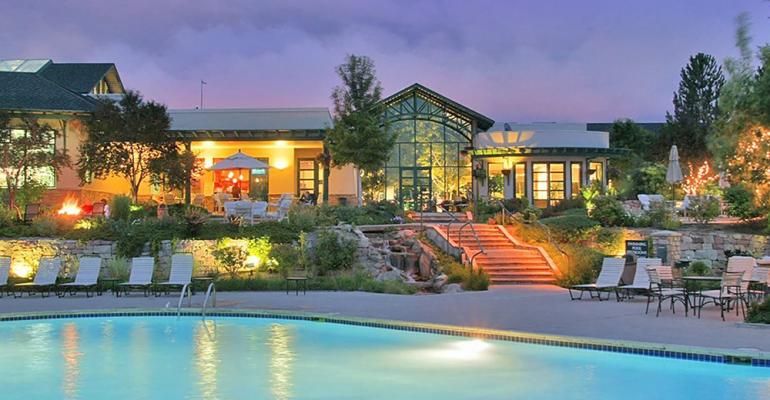Palomino Park Apartments, a giant property with more than a thousand apartments in Denver, sold for $435 million, in a deal that closed in June. The deal shows how rapidly the demand for apartments improved in the first half of 2021, as renters rushed to sign leases and investors bid high to buy properties as the U.S.—especially in attractive, secondary, apartment markets like Denver.
“It is going to be a record, single-asset trade for sure,” says Pamela Koster, managing director of capital markets for JLL Capital Markets, working in the firm's Denver offices. “The fact that Colorado saw a transaction of this size is important for Denver.”
Crow Holdings, based in Dallas, paid $435 million the Palomino Park Apartments, a 1,184-unit, upscale apartment community in the Highlands Ranch submarket of southeast Denver. Crow Holdings is a private real estate office associated with the descendants of famed developer Fred Trammell Crow.
JLL began to market the property in February 2021 by contacting 40 potential buyers around the U.S. “We had a very targeted marketing plan. We didn’t email a thousand people,” says Koster. Of those potential buyers, 21 made initial bids for the property. Of those, groups representing 13 different potential buyers visited the property.
“The first surprise is how much interest there was for a deal of this size in Denver,” says Koster. “This was the first deal where we really saw pricing run.... We were 4 percent to 10 percent higher than the ‘whisper price’ from when we began to market the property.”
The price works out to a cap rate of 3.6 percent. That investor yield might seem low for an apartment property in Denver before the pandemic, but average cap rates dropped steadily over the last year from close to 5 percent at the start of 2020.
Low interest rates and strong performance for Denver apartment properties continues to attract investors. “We’ve had seven deals close in 2021 so far. Not one traded at a cap rate over 4.0 percent,” says Koster.
The demand for apartments has strengthened a throughout 2021. “As we were marketing this, the numbers kept getting stronger and stronger,” says Koster.
JLL calculates its cap rate for the deal based on trailing, one-month rental income from the property, to reflect the latest improvement to the numbers. The percentage of apartments occupied at the property rose from 94 percent at the beginning of the year to 96 percent when the deal closed in June. Rents at the property also rose from $1.71 per square foot to $1.81 per square foot.
The percentage of apartments that were vacant climbed higher in Denver throughout the pandemic, reaching 6.6 percent in first quarter, up from 5.8 percent the year before. Effective rents dropped 2 percent, to an average of $1,365, according to data from Reis, Inc.
Demand for apartments returned this spring, however, as more people received vaccinations against the coronavirus and the number people newly diagnosed with the disease fell. The percentage of vacant apartments is expected to fall to 6.0 percent by the end of the year, with rents back up to their pre-pandemic level, according to Reis.
Rents also have room to grow at the Palomino Park Apartments, which was first built two decades ago. The seller, Nuveen Real Estate, had already completed renovations in about half of the apartments costing roughly $9,000 per apartments—and these apartments now earn an average of $225 more in rents.
Denver is also an unaffordable housing market where rents are likely to keep rising. The median home price in Denver is $640,000, which is as expensive as the price of a home in San Diego. “Nobody ever believes that,” says Koster. “I always have to prove that to investors.”
The high price and low investor yield for the sale of the Palomino Park Apartments shows that more investors and becoming interested in growing cities like Denver. “The fact that Colorado saw a transaction of this size is important for Denver… we are still considered a tertiary market,” says Koster. “I think it’s going to bring more investors here on the multifamily side.”





